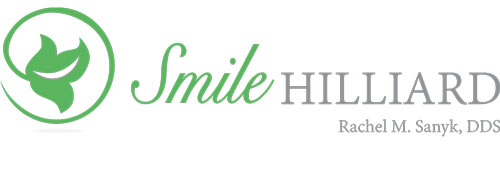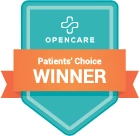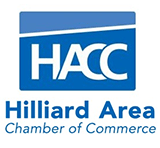The good news is that there are a number of different options to finance your dental treatment. The bad news is that unfortunately, more options tend to make things more confusing for patients!
In this post, we’ll explain the differences between several financing options so you can make an educated decision about how to pay for your dental care.
Using an HSA or FSA Account to Pay for Dental Treatment
Many patients wonder if they’re able to use a Health Savings Account (HSA) or a Flexible Spending Arrangement (FSA) to help pay the cost of their dental treatment. Rest assured that the answer to this question is YES! Both accounts allow you to make tax-free contributions to save for medical costs.
Both HSAs and FSAs allow people with health insurance to set aside money for health care costs referred to as “qualified expenses,” which may include deductibles and copayments towards treatment, health-related products, and prescriptions. Sometimes employers will contribute funds to these accounts as well.
In most cases, you receive a debit card for your HSA or FSA account, which you may use to pay for these qualifying expenses throughout the year. For instance, you can use this card to make payments in our office towards your dental care or certain products. However, you’re also able to submit a payment receipt to your HSA or FSA account for direct reimbursement as well.
Who Qualifies for an HSA Account?
Health Savings Accounts are only available to those who have a High Deductible Health Plan (HDHP), with a deductible of $1,300 or more for an individual, or $2,600 or more for a family. To qualify for an HSA, this must be your only health insurance plan—you must not be eligible for Medicare and you cannot be claimed as a dependent on someone else’s tax return.
For 2017, contributions to an HSA are capped at $3,400 for individuals and $6,750 for families. You can change the contribution amount at any time during the year and unused balances roll over to the following year. Contributions to the account are tax-deductible but can also be taken out of your pay pre-tax; growth and distributions are also tax-free.
Who Qualifies for an FSA Account?
Flexible Spending Arrangements generally have no eligibility requirements. For 2017, contributions to an FSA are capped at $2,600. Contribution amounts can be adjusted only at open enrollment with your employer’s Human Resources Department or with a change in employment or family status.
With some exceptions, FSAs are “use it or lose it,” meaning you’ll forfeit any unused balance at the end of the year. Contributions to the account are pretax and distributions are untaxed.
Which Is Right for Me—an HSA or an FSA?
Both accounts have benefits that can make managing your out-of-pocket medical expenses easier throughout the year. Things like your flexibility in contributing, the ability to keep your unused balance, and additional tax benefits make the HSA the wisest choice if you have the option.
Still, either account stands to save you money and make budgeting for medical costs easier.
If you don’t qualify for an HSA, sign up for the FSA. It’s a good idea to contribute enough to cover your deductible, expected medication costs, anticipated doctor visits, and any planned treatments or surgeries for the year.
What Is CareCredit?
CareCredit is a healthcare credit card designed for your health and wellness needs and is a great option for patients who need assistance in financing their care through convenient monthly payments. It’s accepted at over 200,000 providers nationwide for Dentistry, LASIK and Vision Care, Cosmetic and Dermatology Procedures, Veterinary, Hearing Care and other specialties.
CareCredit is easy to apply for online and approval decisions are given instantly. Once approved, you will be issued a purchasing card in the mail and can use your account immediately.
You can use your CareCredit account over and over (subject to credit approval) for you, your family, and even your pets – without reapplying – as long as you have available credit.
What Financing Options Does CareCredit Offer?
CareCredit allows you to choose from a wide range of financing options for your care. There are Deferred Interest options for 6 and 12 months that allow you to pay for purchases of $200 or more with minimum monthly payments made throughout the duration of your promotional period. Interest accrues during the promotional period but will not be charged if you pay your balance in full by the end of the promotional period.
There are also Reduced APR special financing options of 24, 36, 48 and 60 months for larger purchase amounts ($1,000 or more for 24, 36, and 48 month options with a 14.9% APR, and a 60 month option for purchases over $2,500 with a 16.9% APR). These options allow you to make monthly payments with a reduced interest rate over the duration of your promotional period. There are no prepayment penalties at any time with CareCredit.
Using the Smile Hilliard Membership Club to Cover Dental Expenses
At Smile Hilliard, we believe everyone should have access to high-quality dentistry and customer service, regardless of the availability of traditional dental insurance. With this in mind, we are proud to offer our own In-House Membership Club for patients without dental insurance benefits!
Upon joining our club, you will receive all the preventative services included, plus an additional 15% off any diagnosed treatment. After an initial investment of $145 per enrollee (which covers the initial appointment), a patient then pays a low monthly membership fee via credit card EFT.
The Smile Hilliard Membership Club is a much better option compared to what most self-purchased insurance plans offer for the same price. There are no claims to file, no waiting periods, no denials and none of the hassles experienced with traditional insurance plans.
All that is needed to join is an email address and a credit card for the monthly billing. There is no long-term obligation and you can cancel the membership at any time. There are three different membership types: Adult HealthyCare, Child HealthyCare, and Adult PerioCare. View details of the different membership club options here.
Between HSAs/FSAs, CareCredit, and in office Membership Programs, the old adage of “no insurance, no problem” is actually true! Using any of these methods ensures that you receive the dental treatment you need without the stress and headache of personally covering the total cost upfront. Have questions? Contact us today for more information!





